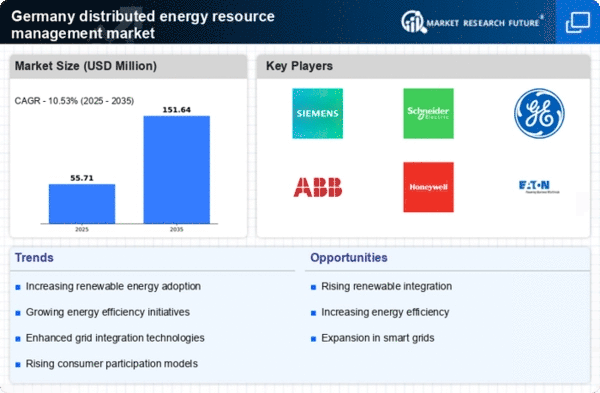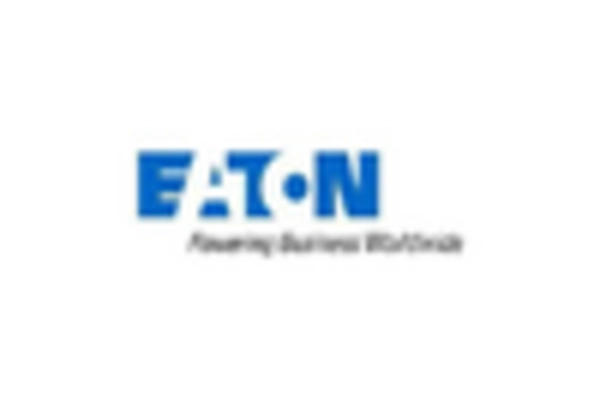Increasing Energy Independence
The quest for energy independence is a significant driver for the distributed energy-resource-management market in Germany. As geopolitical tensions and fluctuating energy prices continue to impact energy security, there is a growing emphasis on local energy production. The distributed energy resource management market enables consumers and businesses to generate their own energy. This reduces reliance on imported fossil fuels. This trend is particularly relevant in the context of Germany's commitment to phase out nuclear energy by 2022 and reduce coal usage. By fostering local energy generation, the distributed energy-resource-management market supports national energy security and resilience, which is increasingly prioritized by policymakers.
Consumer Awareness and Engagement
Consumer awareness and engagement are emerging as vital drivers for the distributed energy-resource-management market in Germany. As individuals become more informed about energy consumption and its environmental impacts, there is a noticeable shift towards sustainable energy practices. Surveys indicate that over 70% of German consumers are willing to invest in renewable energy solutions, reflecting a growing interest in energy self-sufficiency. This trend is likely to encourage the adoption of distributed energy resources, as consumers seek to manage their energy usage more effectively. The distributed energy-resource-management market stands to gain from this heightened consumer engagement, as it provides tools and platforms for individuals to monitor and optimize their energy consumption.
Rising Demand for Renewable Energy
The increasing demand for renewable energy sources in Germany is a pivotal driver for the distributed energy resource management market. As the country aims to achieve its ambitious climate goals, the share of renewables in the energy mix is projected to reach 65% by 2030. This transition necessitates advanced management systems to optimize the integration of solar, wind, and other renewable sources. The distributed energy-resource-management market is likely to benefit from this shift, as it enables efficient energy distribution and consumption. Furthermore, the German government has set a target to reduce greenhouse gas emissions by 55% by 2030 compared to 1990 levels, which further emphasizes the need for innovative energy management solutions.
Government Incentives and Subsidies
Government incentives and subsidies are crucial drivers for the distributed energy-resource-management market in Germany. The federal government has implemented various programs to promote the adoption of renewable energy technologies and energy management systems. For instance, the Renewable Energy Sources Act (EEG) provides financial support for renewable energy projects, which encourages investment in distributed energy resources. Additionally, the German government has allocated approximately €9 billion for energy efficiency measures and renewable energy projects in its latest budget. Such financial backing is likely to stimulate growth in the distributed energy-resource-management market, as it lowers the barriers to entry for new technologies and encourages widespread adoption.
Technological Advancements in Energy Storage
Technological advancements in energy storage solutions are significantly influencing the distributed energy-resource-management market. Innovations in battery technologies, such as lithium-ion and flow batteries, are enhancing the efficiency and capacity of energy storage systems. In Germany, the energy storage market is expected to grow at a CAGR of approximately 20% from 2025 to 2030. This growth is driven by the need for reliable energy supply and the ability to store excess renewable energy for later use. As energy storage becomes more affordable and efficient, it is likely to play a crucial role in the distributed energy-resource-management market, facilitating better energy management and grid stability.
















